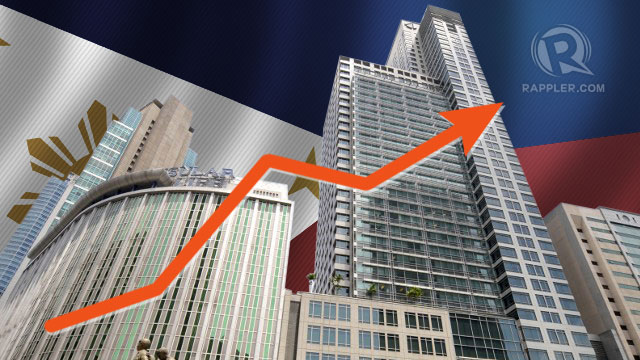SUMMARY
This is AI generated summarization, which may have errors. For context, always refer to the full article.

MANILA, Philippines – The World Bank Group’s Board of Executive Directors has endorsed a new Country Partnership Strategy (CPS) for the Philippines, in support of the country’s goal of attaining and sustaining inclusive growth that would reduce poverty and create more and better jobs.
“With the Philippines among the fastest growing countries in the world, this strategy offers a unique opportunity for the World Bank Group to support the government’s efforts to improve the lives of the poor and vulnerable by creating more jobs and better opportunities,” World Bank Vice President for East Asia and Pacific Axel van Trotsenburg said in a statement Thursday, June 12.
He said the World Bank Group (WBG), through its public and private resources, “will help Filipinos build resilience to economic shocks from natural disasters and climate change and to build shared prosperity, including for people in Mindanao seeking the rewards of peace.”
The CPS is a joint strategy of 3 WBG members – the International Bank for Reconstruction and Development (IBRD) also known as the “World Bank,” the International Finance Corporation (IFC) focused on the private sector in developing countries, and the Multilateral Investment Guarantee Agency (MIGA) that provides political risk insurance to private sector investors and lenders.
The indicative new financial commitment from IBRD may average $800 million a year, along with non-lending support in the form of analytical and advisory assistance. IFC has committed $250-$300 million in investments in the next couple of years, WBG said.
5 key engagements
The new CPS from 2015 to 2018 supports the country’s development programs in 5 key engagement areas:
- Transparent and accountable governance: strengthening public financial management, improving fiscal transparency and financial accountability, and supporting greater demand from citizens for government accountability
- Empowerment of the poor and vulnerable: improving health and education outcomes, strengthening social protection, and ensuring the availability of more timely and improved measurements of poverty
- Rapid, inclusive, and sustained economic growth: promoting economic policy reform for inclusive growth, boosting private sector development by improving the investment climate for firms of all sizes, including greater access to finance, and increasing productivity and job creation, especially in rural areas
- Climate change, environment, and disaster risk management: increasing physical, financial, and institutional resilience to natural disaster and climate change impacts, and improving natural resource management and sustainable development
- Peace, institution building, and social and economic opportunity: supporting social and economic development in conflict-affected regions in Mindanao, including the Bangsamoro
Joint strategy
The 3 members of the joint strategy will help mobilize private sector investment and support job creation.
“IBRD, IFC, and MIGA will work together more closely on engagements in sectors like agriculture and agri-business, trade and logistics, infrastructure and public-private partnerships—programs and projects that will help generate more opportunities for small and micro-entrepreneurs to flourish and create more jobs,” said IFC Vice President for Asia Pacific Karin Finkelston.
The Philippines hails the new CPS of the WBG as an affirmation of its support for its development objectives.
“The strategy’s continuing focus on good governance, strengthened public finances, and fiscal transparency will support the Aquino administration’s efforts to continue the virtuous cycle of expanding our fiscal space for greater investments in infrastructure and social services,” Finance Secretary Cesar V. Purisima said.
The new partnership strategy is also aligned with the goals of the Updated Philippine Development Plan (PDP) 2011-2016.
National Economic and Development Authority Director General Arsenio Balisacan said “more equitable access to development opportunities will ensure that even the poor will gain from and contribute to growth through highly productive and quality employment and effective social safety nets to protect the vulnerable sectors of society.”
“World Bank Group support through the CPS will help us achieve that,” Balisacan said.
Strong macro-economic fundamentals have enabled the Philippines to record high growth rates in the last several years. Translating high-growth rates into faster decline in poverty and the creation of more and better jobs, however, remains an urgent challenge.
“The World Bank Group will prioritize projects and assistance which support poverty reduction and shared prosperity, utilizing the analytical and monitoring tools necessary to ensure that these interventions clearly benefit the poor. In particular, we will focus on areas and sectors where poverty is very high,” World Bank Country Director Motoo Konishi said.
On June 10, the World Bank announced “flat” growth rate for developing countries, including the Philippines. Its forecasts for the Philippine economy was expected to grow above 6% this year up to 2016. – Rappler.com
Add a comment
How does this make you feel?
There are no comments yet. Add your comment to start the conversation.